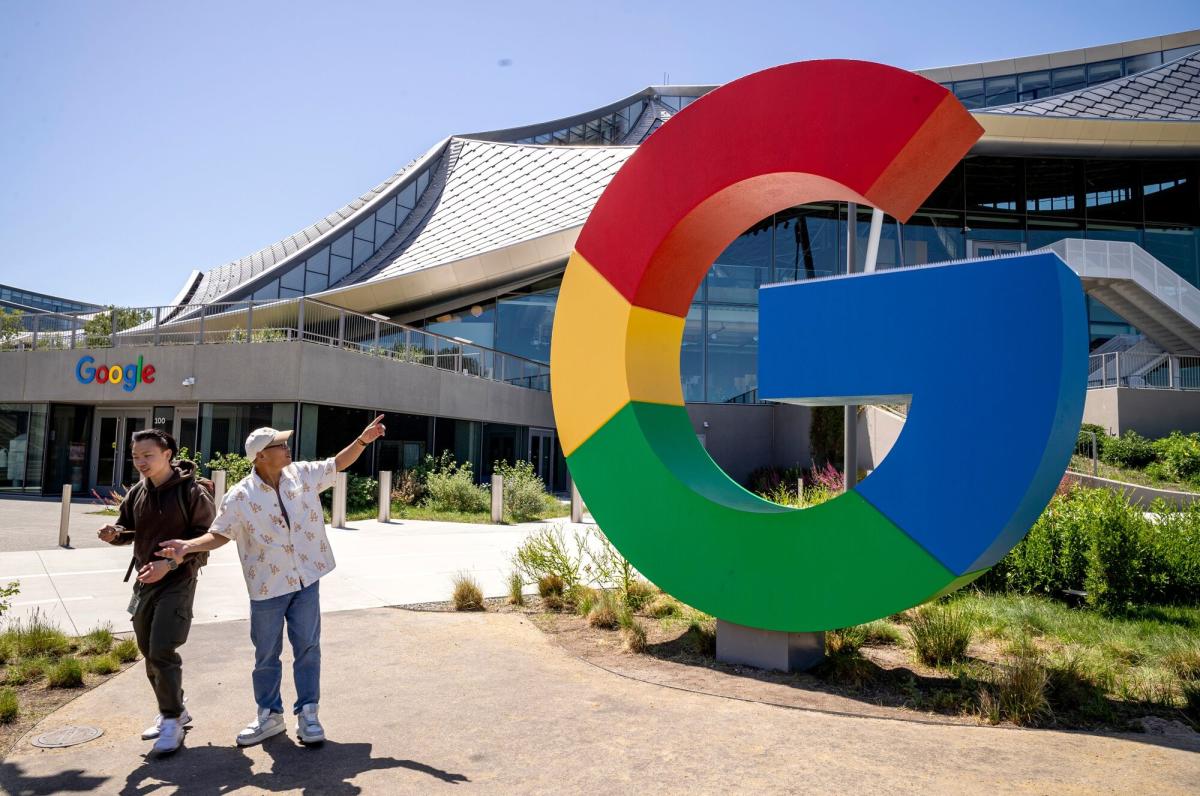(Bloomberg) — Google’s antitrust problems are coming home to roost.
Most Read from Bloomberg
While the company has beat back European antitrust interventions by paying 6.5 billion euros ($7.1 billion), US enforcers are now flexing their muscles — and the most painful part for the Alphabet Inc. unit won’t be monetary fines, but blows to core businesses that bring in big revenue.
In a span of three days, a federal judge ordered the company to open up its lucrative app store to rivals and the Justice Department said it may seek to force the tech giant to spin off some of its services to remedy its monopolization of online search.
While a breakup may be a hard sell to the Washington judge overseeing the Justice Department’s search case, Google is undoubtedly looking at changes to the way it has long operated, antitrust experts said.
Break Up Google? What’s at Stake in Antitrust Action: QuickTake
The Justice Department is trying to come up with “remedies that will not only reintroduce competition in search but make sure that as the market changes, Google doesn’t re-entrench itself,” Abiel Garcia, antitrust lawyer and partner at Kesselman Brantly Stockinger LLP. The remedies might cause Google “to rethink and reevaluate business strategy to some extent, but it’s not like we’re not going to have a Google anymore.”
Google criticized the Justice Department’s initial proposal as “radical,” saying it would have “significant unintended consequences for consumers, businesses, and American competitiveness.”
The company’s shares have declined more than 15% since reaching an all-time record of $191.18 on July 10.
“There is a clear overhang when it comes to the antitrust side of things and the scrutiny that Alphabet gets,” Bloomberg Intelligence senior tech industry analyst Mandeep Singh said on Bloomberg TV.
Dhaval Moogimane, a senior partner at consulting firm West Monroe, said forcing Google to share its index could aid not just search rivals, but AI companies seeking to enter the space.
Sharing the search data “certainly opens up competition, which is the intent here,” he said. “It is the secret sauce from a Google perspective.”
Daniel Morgan, a fund manager at Synovus Trust Co., compared requiring Google to share its data to Coca-Cola being asked to provide its recipe to other soda manufacturers.
“The DOJ is looking to reduce the moat to entry on behalf of other search rivals,” said Morgan. Google’s “proprietary algorithm, which has served as their competitive advantage as the dominant search firm in the world, would become available as an open-source type of model for their competitors.”
Vanderbilt Law School professor Rebecca Allensworth, who has closely followed the suit, says she thinks it is “very unlikely” that US District Judge Amit Mehta would go for a breakup. Much of the Justice Department’s case focused on Google’s $20 billion deal with Apple Inc. to be the search default on the iPhone, she said, not on Chrome or Android — the Google products that DOJ identified to be potentially spun off.
Mehta has very closely hewed to the Microsoft Corp. case, she said, where the Justice Department successfully sued the Windows maker in 1998 for monopolizing computer operating systems. The judge in that case initially decided Microsoft should be broken up before being overturned on appeal.
“There is no way that judge is going to break up Google on this case,” Allensworth said of Mehta.
John Kwoka, an economist at Northeastern University who has extensively researched antitrust remedies, said the breakup “ought to be on the table” at least as a “signal” to Google and other companies with monopolization cases pending that antitrust enforcers won’t accept a wimpy resolution.
With a conduct remedy, the company has the incentive to evade, and even mandatory data access can be tricky because of questions about who gets the data and how much, he said.
“The track record on structural remedies is pretty good,” Kwoka said, noting the AT&T breakup occurred after years of unsuccessfully trying to fix the problems with conduct remedies. “There can be a lot of collateral damage if enforcers wait to bite the bullet.”
Bill Kovacic, an antitrust professor at George Washington University Law School, said the Justice Department’s filing was a “conscious effort at framing” the issue for the judge, “giving him a menu from milder to spicy hot.”
Notwithstanding Google’s labeling of a breakup as a “radical” solution, Kovacic noted businesses today have “a lot of experience putting companies together and taking them apart.” And some of the Justice Department’s proposals – such as the requirement to share some of the company’s search data – are already in place in Europe as part of a rollout of new digital gatekeeper rules, he said.
Kwoka and Allensworth also agreed the Justice Department may be trying to use the breakup option as an opening gambit so Mehta is more inclined to pick another remedy they like, such as data-sharing.
“That would be a really progressive remedy,” said Allensworth. “Sharing the index would be a nice, obvious way” to resolve the issues.
(Updates with additional comments in 11th paragraph.)
Most Read from Bloomberg Businessweek
©2024 Bloomberg L.P.

